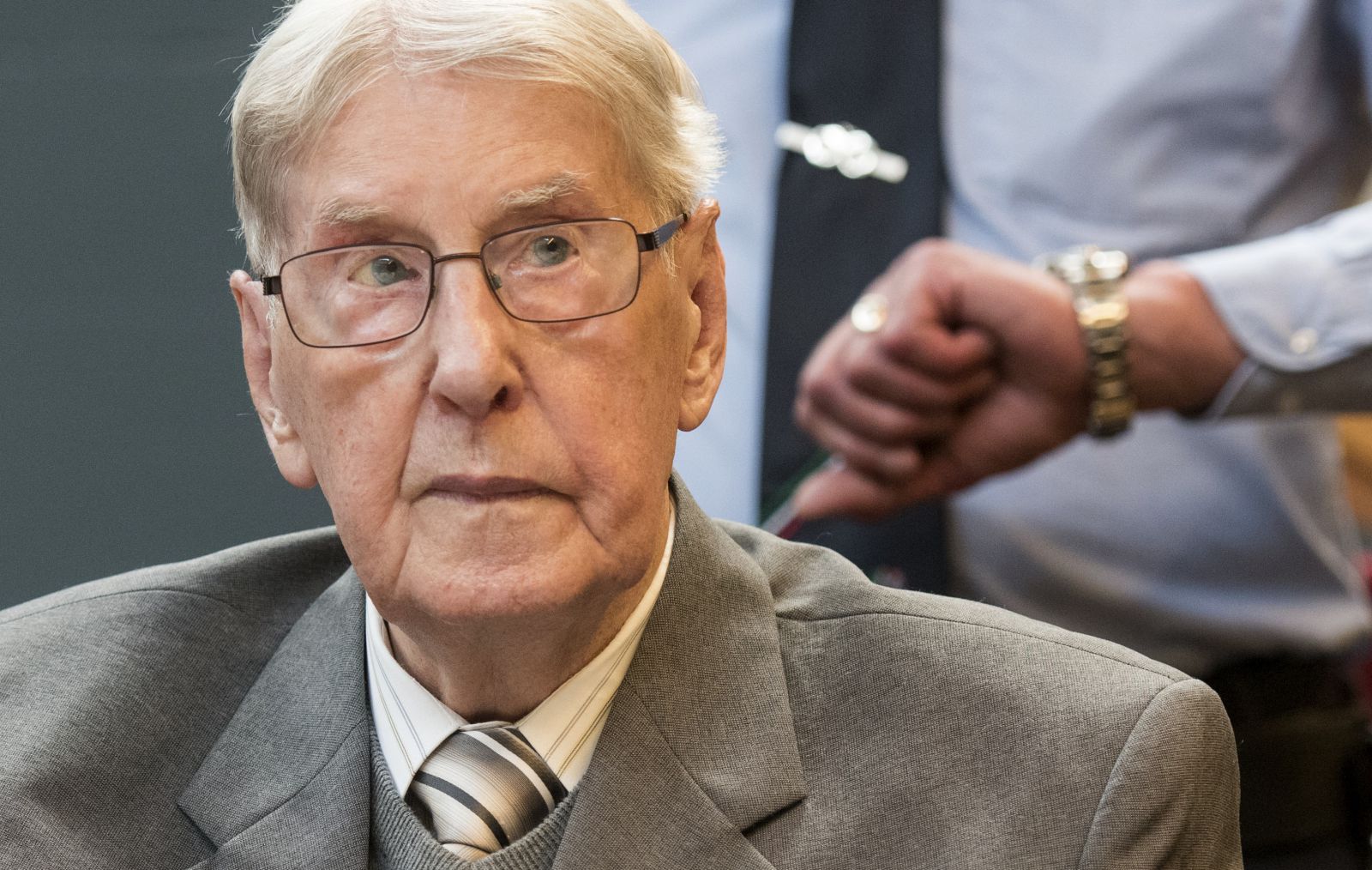It’s been bothering me for days, even though I could not put my finger on why. A German court sitting in Detmold convicted former Auschwitz guard and SS member, Reinhold Hanning, of being an accessory to murder – a minimum of 170,000 murders to be specific. His sentence for complicit in such horrendous crimes? 5 years imprisonment.
5 years for 170,000 murders? That comes out to about 15 minutes in jail for each life he was complicit in taking. Sounds crazy to me! And yet, it’s not that simple, at least for me. Hanning is 94 years old, and as I have written in the past, I am not at all convinced that trying dying old men for things they did entire lifetimes ago, actually makes sense.
At the very least we would need to ask if this is the best use of resources. What, for example, if all of the time and money spent on the trial was used to help Holocaust survivors living out their remaining years in poverty? What if those resources were meant educating people about the Holocaust and how millions of “regular Germans” became complicit in mass murder?
Don’t get me wrong, this guy deserves whatever he gets. But if that is true, then why only give him 5 years?
And that is when it hit me this morning. What’s troubling about his sentence is that while I could make a case for not trying him at all and at least as good a case for sending him away for life – however long or short that may turn out to be – it’s the choice to do neither of those that I find troubling.
Believe me; I appreciate that in giving a 94 year old man a 5 year sentence, the court is, in all likelihood sentencing him to life in prison. But if that is what they want to do, then they should have the courage to stand up and do just that – not hide behind some actuarial table. This smacks of “splitting the baby” in ways which creates an artificial sense of justice without the state taking responsibility for the real impact of their actions.
This sentence is ultimately a spineless act which continues a 70 year history of German legal ambivalence about how to pursue former Nazis – lacking neither the fortitude to say that at some point pursuing a bunch of old men in what amounts to show trials makes no sense, or that it makes sense because there is no statute of limitations on genocide.
Either way would, it seems to me, be a more honest, ethical and moral way to proceed – not to mention that either would be a path toward addressing the eternal question of people taking moral responsibility for the choices they make, and for the impact of those choices on others – perhaps the most durable issue here.
If we know anything about the Holocaust, it is that required millions of people’s consent and participation. It required that most of those people were able to do horrible things for which, they often told themselves, they were not really responsible. That collective shirking of responsibility was a key ingredient in translating a small group’s genocidal fantasies into one of humankind’s.
Of course, I am not comparing this court’s decision to those of made by the Nazi regime. I am simply pointing out that the human desire to avoid responsibility for tough decisions – both good ones and bad ones – runs deep. Had this court case, and the sentence the court handed down, helped us to address that fact, I think we would have all had something to gain. Instead, I fear, this may be just another example of wiping away a problem without taking responsibility for where we dump the soiled rag we used to do the wiping.

